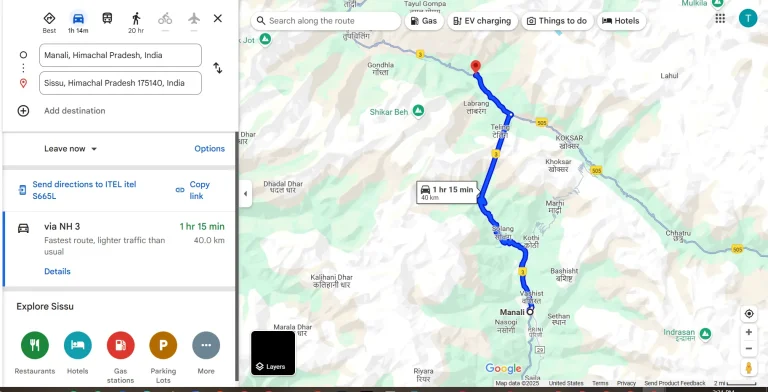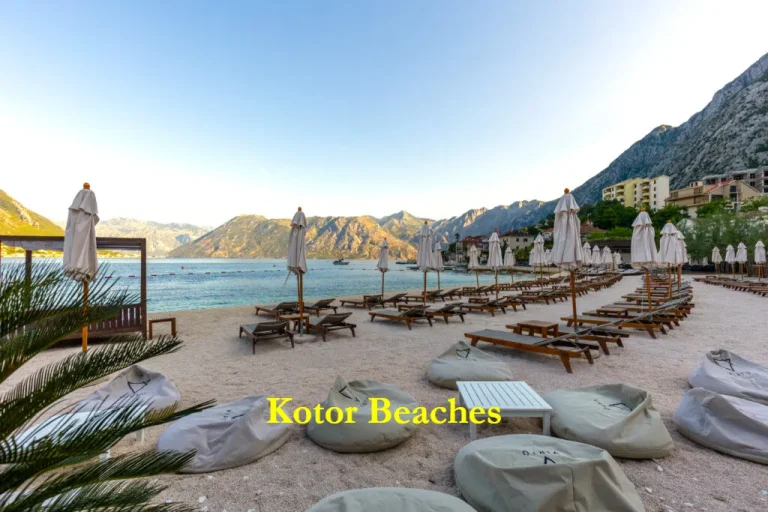Living in New Hampshire

New Hampshire’s picturesque landscape and close-knit communities make the state attractive to families and individuals. Its low property and violent crime rates create a safe environment for residents, and its lack of an income tax lets people keep more of their hard-earned money.
However, living in the Granite State can be challenging at times. Read on to discover if its charms weigh heavier than the challenges it brings.
Cost of Living
New Hampshire has a lower cost of living than most other states, making it an attractive place to live. The state’s low income tax and lack of a sales tax make it easy to afford basic expenses such as housing, food, and transportation. In addition, the state’s high level of education and low poverty rate contribute to its low cost of living.
The costs of living in NH vary depending on your location and lifestyle, but there are some general trends. For example, a single person living in Manchester will pay on average $434 for utilities each month, which is slightly higher than the national average. However, there are also areas where the cost of living is much lower than in other parts of the country, such as in rural communities where housing prices and utility costs are significantly lower.
In general, you should plan to spend no more than 30% of your income on housing expenses. This is particularly important in areas where housing costs are high, such as cities like Manchester and Portsmouth. Fortunately, many efforts are underway to address the shortage of affordable housing in the Granite State. These initiatives include emergency rental assistance programs, cultural shifts to support zoning that allows for more affordable housing, and a variety of workforce housing projects. If you’re thinking about moving to New Hampshire, it’s important to understand the cost of living before making the move. This guide will help you prepare your budget and make the best decision for your personal situation.
Weather
New Hampshire has a humid continental climate. This means that winters are cold and snowy, while summers are warm and humid. The state also experiences a significant amount of rainfall throughout the year. The state’s mild winters and moderate spring and fall weather attract many visitors who are drawn to its natural beauty and recreational opportunities.
However, those who are used to a vibrant city atmosphere may find New Hampshire’s slower pace frustrating. Its lack of public transportation infrastructure means that most residents rely on their cars for commuting and errands. This can be challenging for people who are not comfortable driving in snowy conditions.
The best time to visit New Hampshire is during the fall, when the beautiful foliage provides a picturesque backdrop for hiking. However, winter is also a popular season for tourists who enjoy skiing and snowboarding in the state’s many mountain resorts.
If you are looking for a place in New Hampshire with the least cold winters, focus on southern and coastal areas. These areas are closer to the ocean, which helps moderate winter temperatures and shortens the duration of snowfall.
Public Schools
New Hampshire offers top-tier schools that set children up for lifelong success. The state ranks highly in the nation for primary and secondary academics and offers a range of educational options that give parents flexibility in choosing the best schooling fit for their child.
Families have another option in public charter schools, which are tuition-free and can innovate with curriculum and learning methods. Charter schools are accountable to authorizing entities, which means that they must meet certain standards for results. If more families apply to a charter school than there are seats, a lottery system is often used to determine admittance.
In addition to the traditional public schools, New Hampshire also has a number of microschools. These institutions cap their classes at 12 students and offer a student-led curriculum that focuses on discovery and lifelong learning. Students from families earning below 300 percent of the federal poverty level can apply for the Education Freedom Account, which allows them to use funds to customize their homeschooling experience.
School funding in New Hampshire is based on property values, with communities with higher property values typically having higher per-pupil spending levels. The interactive map below shows how per-pupil spending varies across the state, with darker colors indicating higher spending levels and larger bubbles representing higher property values.
Transportation
New Hampshire is a small state that relies heavily on public transportation to get people around. However, a lack of funding may be impeding efforts to improve the state’s public transportation system. Currently, only 25 of the state’s 234 communities have regular fixed or flex-route bus service. This can make it difficult for people to get to work and other daily activities, especially those living below the poverty line who often have low incomes compared to their commuter counterparts.
A number of community transportation providers operate in the state, including shuttles for older adults and volunteer driver programs that connect people with other services in their area. The state also has a Mobility Management Network that connects individuals with the transportation services that are best suited for them.
The state’s population of 1.3 million people is spread across a relatively small geographic area. Its beaches along the Atlantic Ocean provide recreational opportunities, while its inland forests feature eastern white pine, sugar maple, and black walnut trees. Wildlife includes moose, white-tailed deer, and raccoons. Birds include great horned owls and hairy woodpeckers, and amphibians include painted turtles and bullfrogs.
New Hampshire’s rich history has produced many prominent figures, including 14th President Franklin Pierce, Revolutionary War hero John Stark, the founder of Christian Science religion Mary Baker Eddy, poet Robert Frost, and artist Daniel Chester French. Today, the state’s economy is largely driven by high-tech and service industries.
Cost of Living in Portsmouth, New Hampshire
Choosing the right location is an important decision when moving to a new area. Factors to consider include cost of living, crime, and commute time. Having access to essential amenities like parks, food, and fitness centers also contributes to a satisfying lifestyle.
Portsmouth is a beautiful seaside town with breathtaking views and a historic downtown. It’s also home to Prescott Park, which offers 10-acres of gardens and recreation spaces.
cost of living in new hampshire
If you’re thinking of moving to Portsmouth, New Hampshire, you’ll want to know the cost of living there. This will help you plan your budget and adjust your savings and investment strategies accordingly. You can use online calculators to compare the costs of various cities in the US, including Portsmouth.
Housing expenses are one of the biggest components of the cost of living. In Portsmouth, rent and mortgages tend to be more expensive than the national average. Other costs, such as utilities and transportation, can also be high in this city.
In addition, New Hampshire doesn’t have an income or sales tax, which can be a big financial advantage. However, this state is known for its lack of diversity, which can be a challenge for some people. The majority of residents are Caucasians, and there are few ethnic restaurants in the area. Those who are concerned about this issue should consider moving to a more diverse area.
retirement living in new hampshire
If you are planning on retiring in New Hampshire, there is no better option than living in an upscale senior community. These communities are designed to provide residents with the best quality of life and make retirement feel like a vacation. They also offer a variety of services that help you maintain a healthy lifestyle.
Portsmouth has a beautiful seacoast setting and a small-town feel. It has a population of 22,103 and is known for its historic sites and breathtaking views. The city is also home to Prescott Park, which has 10-acres of lush gardens and walking paths. However, there is limited public transportation in the area, and most people need to have a car to get around. This makes it important to consider if you can afford the cost of owning and maintaining a vehicle. There are many other options for retirees, including a rental community that offers all-inclusive housing and services for an approachable monthly rate.
pros and cons living in new hampshire
New Hampshire is one of the safest states in the US, with low violent and property crime rates. This makes it an ideal place to raise a family. The state also offers top-quality healthcare, with shorter wait times and more personalized care.
New Hampshire’s beautiful, unspoiled natural landscapes are a big draw for residents. The state’s quaint towns offer the perfect combination of historic charm and a vibrant contemporary scene. Portsmouth, for example, boasts well-preserved Colonial architecture and a thriving dining and shopping scene.
However, some drawbacks to living in New Hampshire include high property taxes and limited public transportation. This makes owning a car a necessity, which can have a negative impact on your budget and daily logistics. Moreover, the state’s lack of diversity may feel frustrating if you enjoy the cultural richness that comes with a diverse community.
retirement living in new hampshire
Portsmouth offers many options for retirement living in New Hampshire. Its rich history, beautiful environment, and thriving local scene make it a desirable location for retirees. Moreover, its low crime rate makes it an ideal place to live and raise a family.
The city’s diverse shopping, dining, and fitness options are sure to appeal to a wide variety of people. Its thriving downtown scene also adds to its desirability. However, the high cost of housing may be a deterrent for some people considering moving to Portsmouth.
Residents of Portsmouth enjoy a vibrant coastal lifestyle, with breathtaking ocean views and a bustling historic district. Its affordable and accessible public transportation system allows residents to get around without a car. The city’s proximity to beaches and parks makes it a great place for outdoor activities. Its charming towns and historic streets also offer a sense of community.
living in concord new hampshire
When it comes to choosing a place to live, the environment and local amenities play a significant role in the overall experience. Whether you’re a young professional or a retiree, the right neighborhood will help you enjoy life to its fullest. This is why it’s important to consider all the factors involved in selecting a place to call home.
Among the many benefits of living in Concord, New Hampshire is its low crime rates and vibrant economy. It is also known for its beautiful natural areas and historic sites. However, it is important to keep in mind that the city has a limited public transportation system.
The city offers a variety of unique experiences, such as the Strawbery Banke Museum and 10-acre Prescott Park. The area’s climate is mild and comfortable, with warm summers and snowy winters. There is also a lot of history to explore here, with several historic homes open for tours.
cost of living in nashua new hampshire
If you’re planning to relocate, a good place to start is to get familiar with the local cost of living. This can help you make informed financial decisions, secure a comfortable lifestyle and maintain your financial stability in a new location. Getting an idea of the local cost of living can also influence your savings and investment strategies.
The city’s low crime rate and proximity to Boston make it a popular choice for those seeking a quieter lifestyle. It’s also a great place for families, with a variety of schools and activities to keep children entertained.
But the high costs of living in Portsmouth can be a drawback for some people, especially those who prioritize affordability. These expenses include housing, food, transportation, utilities, and health care. Fortunately, you can cut down on your costs by buying groceries in bulk and using the internet to shop.



